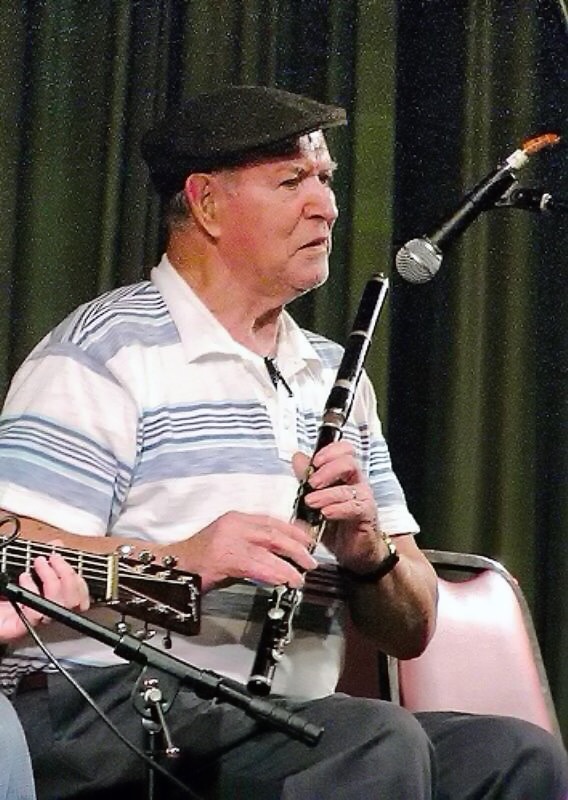The Transnational Life of Kevin Henry

Before I met Kevin Henry in April 2013 what I knew about him primarily rested on his reputation as a musician and raconteur. He comes from the same area on the Sligo-Mayo border as Roger Sherlock and Brendan Tonra, both of whom I’d interviewed and Brendan I had the pleasure of playing tunes with during my time in Boston. I knew also that Kevin had been a mainstay of the Chicago Irish music scene for decades. What I was unprepared for was the fascinating story of his circuitous journey from Ireland to Chicago and the aplomb with which he related it.
Kevin was born in 1929, the eighth of eleven children. Following in the footsteps of his older siblings, he left Ireland for England in 1947. He traveled up and down the country working as a seasonal agricultural laborer, coal miner, and construction worker. In 1953 he decided to seek his fortune across the Atlantic and booked passage to Canada, though his ultimate goal was America. He worked his way from St. John’s, Newfoundland to Toronto and finally across the border to New York, where other siblings lived. There, he worked digging tunnels and waiting tables before deciding to head for Florida’s sunnier climes. Unimpressed with the low wages paid laying pipes in the Everglades or working on the construction of a hotel, he moved north again, this time to Chicago. Apart from a four-month stint mining copper in Butte, Montana, he has remained in Chicago ever since. He spent 37 years as an iron worker, a career that included work on the iconic Hancock Tower. Throughout his life traditional music has remained a touchstone for his identity. Now 87, Kevin continues to work to sustain the culture of his native land and the legacy of music collector Francis O’Neill in his adopted home.
Kevin’s life and the myriad ways he remained connected to his Irish identity are the subject of a new article published in the Transnational Ireland special issue of Éire-Ireland (vol.51, 2016): “‘Looking for that Pot of Gold’: The Transnational Life of Kevin Henry”.
In conjunction with that article, I have put my oral history interview with Kevin Henry, photographs, and recordings of his music on my PhD project website Voices of Irish Music & Migration. More material will be coming soon – stay tuned!
A huge thank you to Kevin and his wife Pauline for sharing their time and their stories with me!